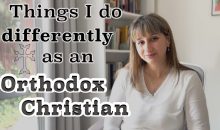Divided by Dates: Understanding the Orthodox Christian Calendar Debate
The Orthodox Christian Church has been a cornerstone of faith for millions of believers around the world, offering a rich tapestry of tradition, spirituality, and community. However, beneath the surface of its unified facade, a contentious issue has been simmering for centuries – the Orthodox Christian calendar debate. This division is not merely about dates but delves deeper into theology, tradition, and the very essence of Orthodox identity.
The Historical Context: Julian vs. Gregorian Calendars
The root of the debate lies in the introduction of the Gregorian calendar in the 16th century by Pope Gregory XIII, aimed at reforming the Julian calendar, which had been in use since 45 BCE. The Julian calendar had a slight discrepancy in its calculation of the solar year, leading to an error of about 11 minutes per year. This might seem minimal, but over centuries, it added up, and by the 16th century, the calendar had drifted by approximately 10 days from the astronomical seasons.
The Gregorian calendar corrected this error, omitting 10 days from the month of October in 1582 and introducing a new rule for leap years to maintain the calendar’s accuracy. However, the Eastern Orthodox Church, suspicious of Roman Catholic intents and already distant due to the Great Schism of 1054, refused to adopt the Gregorian reforms. Instead, it continued with the Julian calendar, leading to a divergence in the celebration dates of major Christian holidays between the Eastern Orthodox and Western Christian churches.
The Calendar Divide: A Theological and Practical Conundrum
Today, the use of the Julian calendar places the Orthodox Christmas on January 7th and Easter on a different Sunday than in the Western Christian tradition. While this division might seem trivial to outsiders, it embodies significant theological, practical, and communal challenges for the Orthodox faithful. Theologically, the argument against adopting the Gregorian calendar often centers on the belief that the Orthodox Church should maintain its historical and ecclesiastical independence from Roman Catholicism. Practically, the difference in holidays can isolate Orthodox Christians from the broader society, especially in countries where Christianity is predominantly observed according to the Gregorian calendar.
Moreover, the calendar issue has become intertwined with nationalist sentiments in some Orthodox countries, where the rejection of the Gregorian calendar is seen as a symbol of resistance against Western cultural and religious hegemony. This confluence of religious tradition, national identity, and resistance against perceived Western imperialism complicates the debate, making a unified resolution challenging to achieve.
A Path Forward: Dialogue and Consideration
Despite the complexities, there are voices within the Orthodox Church advocating for a reconsideration of the calendar, not necessarily to adopt the Gregorian calendar wholesale but to explore a reform that would align the liturgical calendar with the astronomical seasons without compromising the Church’s independence or traditions. This approach would require extensive dialogue and agreement among the autocephalous Orthodox churches, a process fraught with its own set of challenges and disagreements.
Any potential change would need to balance the preservation of Orthodox tradition with the practical needs of its adherents in a contemporary, globalized world. It would also necessitate a nuanced understanding of the historical context of the calendar debate and a willingness to engage in ecumenical dialogue, both within the Orthodox communion and with other Christian denominations.
Conclusion: Unity in Diversity
The Orthodox Christian calendar debate reflects deeper questions about tradition, identity, and unity within the Church. While the division over dates might seem insurmountable, it also presents an opportunity for introspection, dialogue, and potentially, a path towards a more unified expression of Orthodox Christianity. The journey towards resolving this centuries-old debate will be long and complex, requiring patience, understanding, and a commitment to the principles of faith that transcend calendrical differences.

